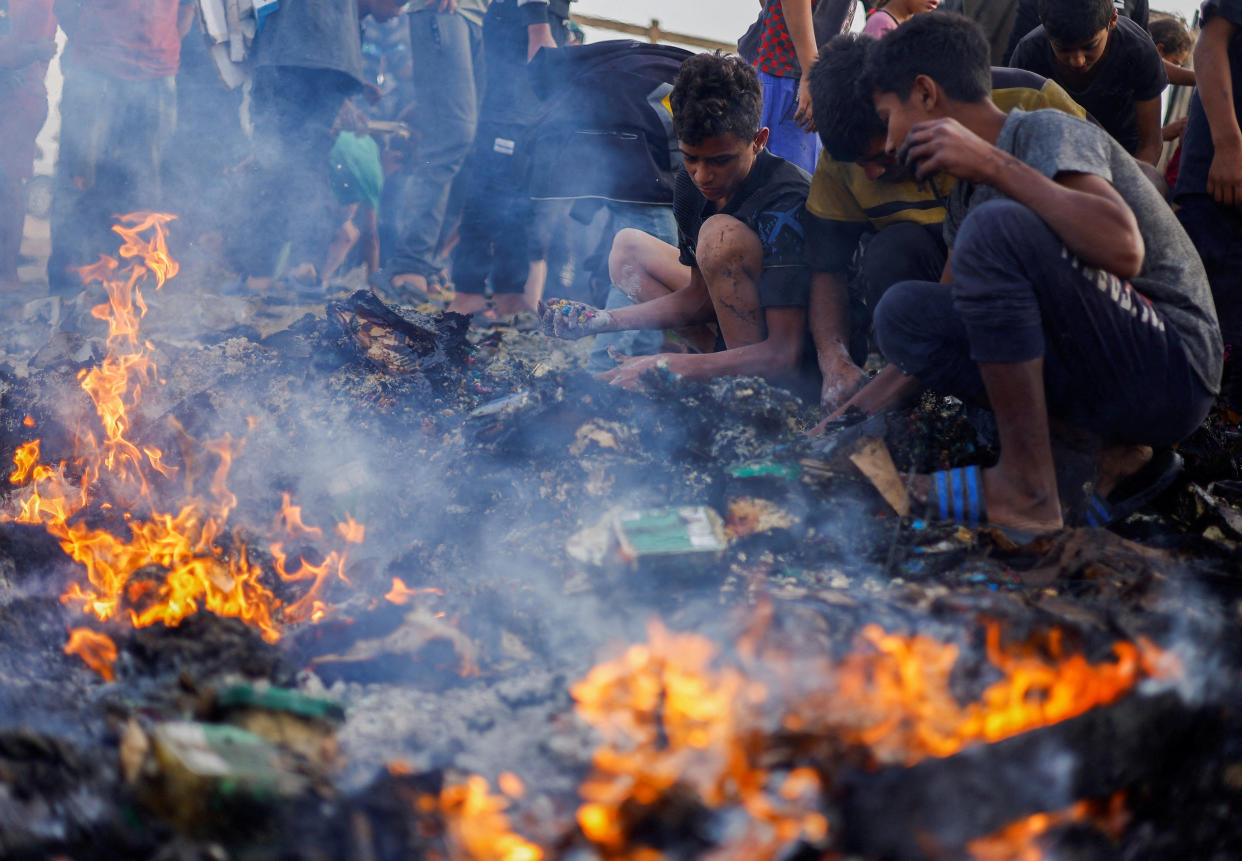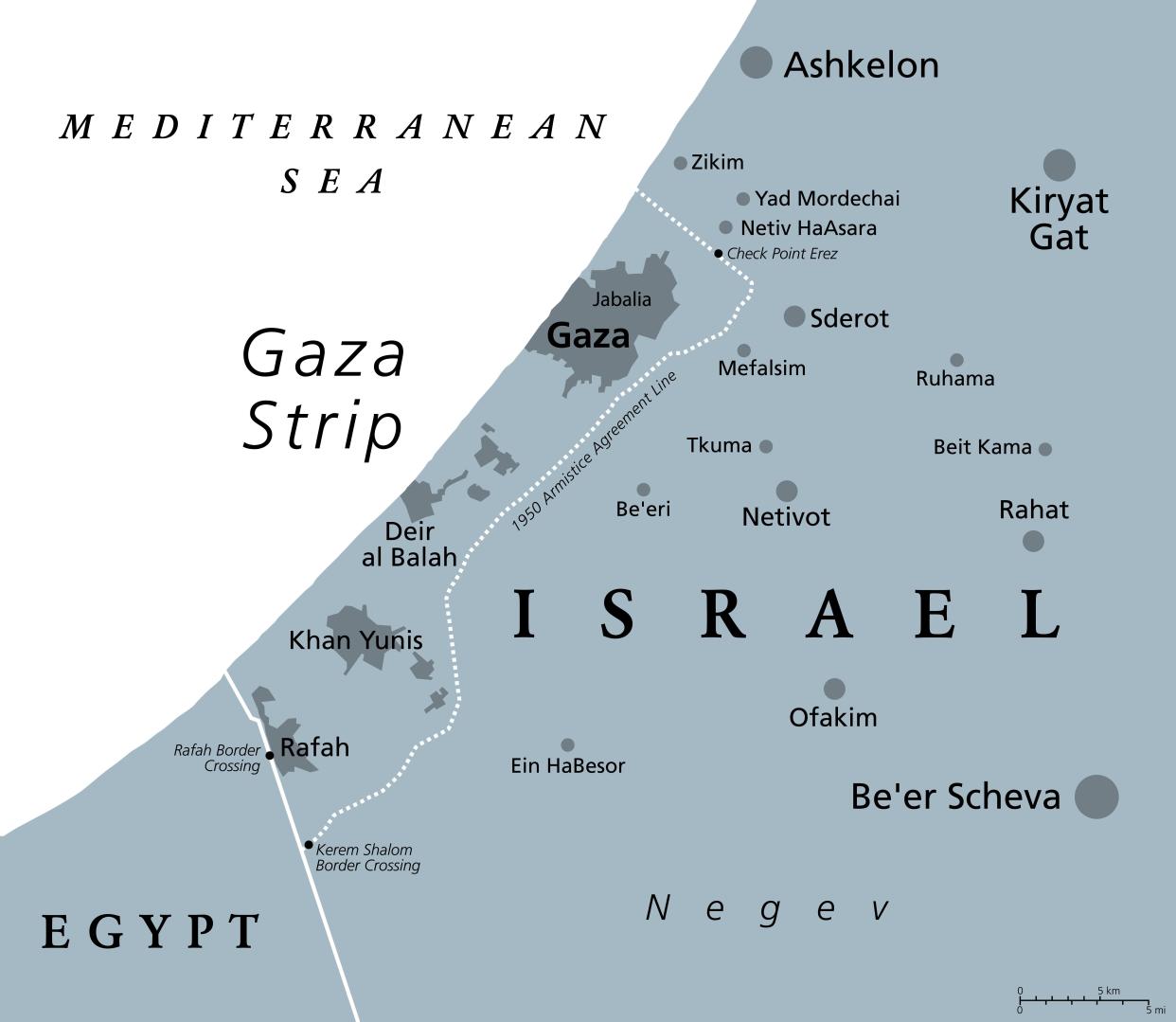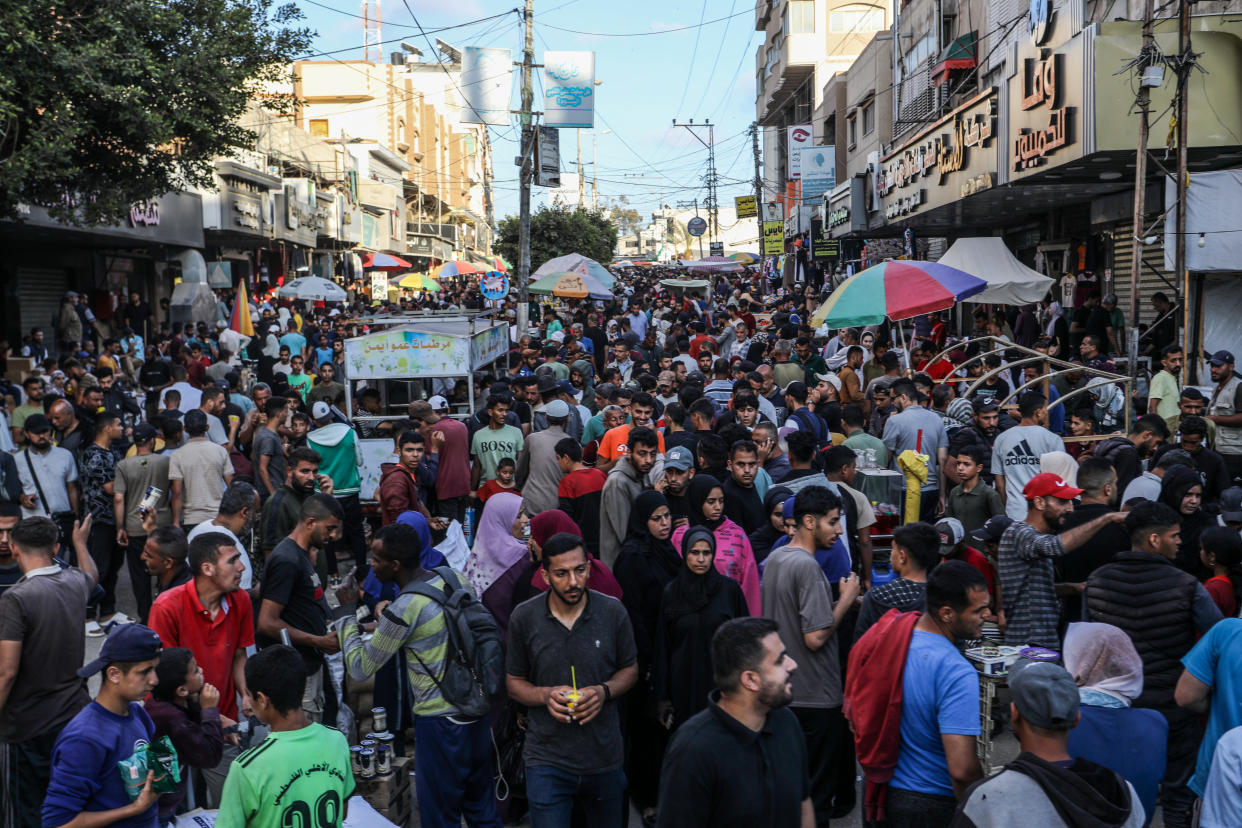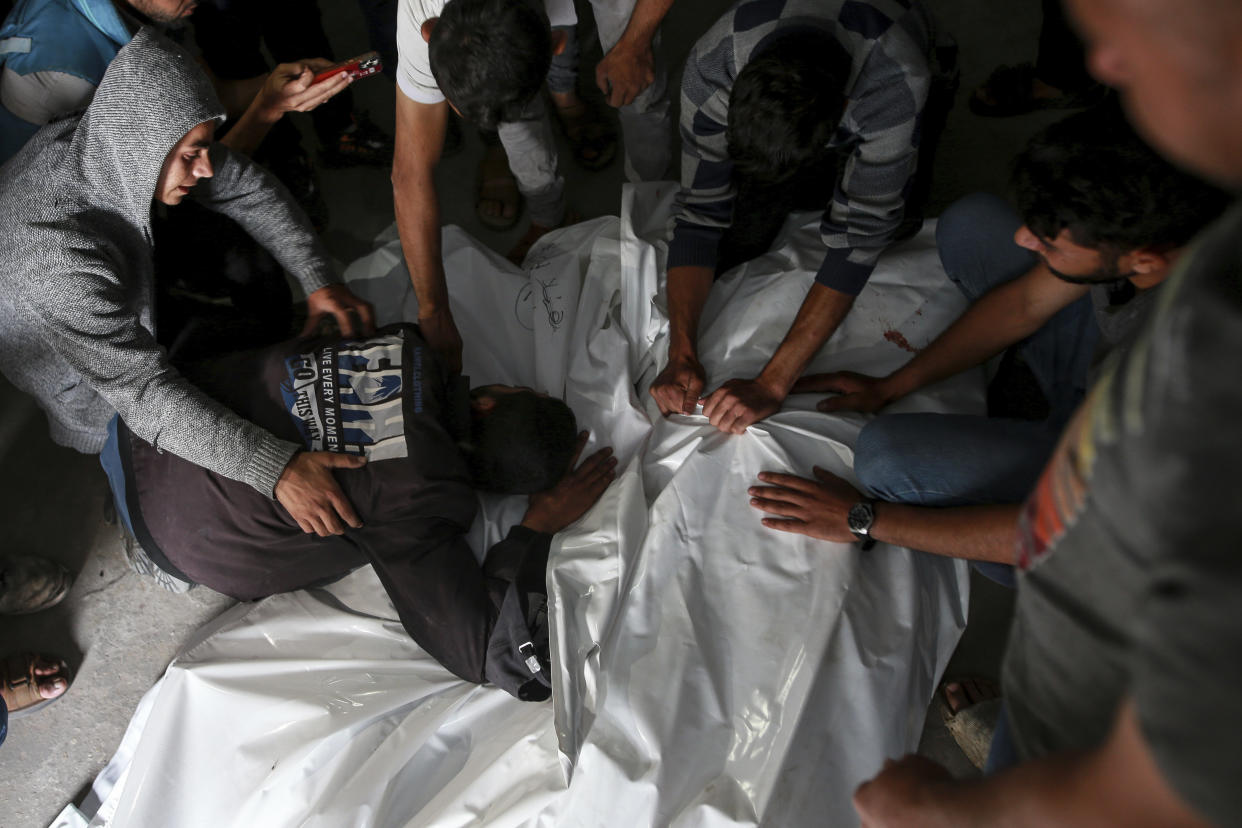What is happening in Rafah? The key developments as Israel's military offensive continues

The southern Gaza city of Rafah has been under siege since Israel forces began what it described as “targeted” ground operations on 6 May.
Once a safe zone for Gazans fleeing conflict in other areas of the enclave, Rafah's expanded population of 1.5 million people (of whom around 1.25 million people were displaced from elsewhere in Gaza) has dwindled to 500,000 – with one million having fled bombardment in the past three weeks.
Israel says Hamas' remaining battalions are in Rafah, and its May offensive in the city has seen Israel gain control of 75% of the zone along the Gaza-Egypt border, a senior Israeli official told the BBC.
Israeli bombings of tented encampments in recent days have resulted in the deaths of at least 65 displaced people, according to the Hamas-run health ministry, while Israel has also seized control of (and closed) the vital Rafah crossing, through which much-needed aid was previously delivered to Gaza.
Charities have warned of a humanitarian catastrophe unfolding, with food, medicine and water now in desperately short supply.
The last hospital in Rafah is also under threat, with aid workers warning that a continuing Israeli incursion would likely see healthcare in the city grind to a total halt.
"If the incursion would continue, we would lose the last hospital in Rafah," Richard Peeperkorn, the World Health Organization (WHO) representative for Gaza and the West Bank, told Reuters.
Where is Rafah?

Rafah is the southernmost city in the Gaza Strip, and the final refuge for many Palestinians who have been displaced multiple times during Israel's bombardment.
Prior to Israel's current offensive in the city, more than 1.3 million people were taking refuge in Rafah, having been displaced from other areas of Gaza.
It became one of the most densely populated places in the world as more Gazans were forced there, with Medical Aid for Palestinians at one point warning that overcrowding had "forced many displaced people to sleep on the streets, in the grounds of hospitals, or in makeshift tents in schools". Of the three hospitals in Rafah, just one remains "barely functional", the WHO said this week.
Prior to the expected ground invasion, Rafah was still subject to airstrikes by the Israel Defense Force, despite the area being designated by Israel as a "safe zone" for people to flee to while northern Gaza was bombarded.
Rafah is a particularly important location given its proximity to the Rafah Border Crossing with Egypt, through which humanitarian aid has previously been delivered.
Timeline of recent events in Rafah
6 May 2024
After weeks of speculation about increased military action in Rafah, Israel drops leaflets in the city ordering people to evacuate.
7 May 2024
Israel seizes control of the Gazan side of the Rafah border crossing, telling civilians in eastern Rafah to evacuate. Israeli airstrikes hit the city, killing at least 25 people.
Aid through the vital crossing is halted – both Israel and Egypt blame one another for the crossing being closed.
8 May 2024
US president Joe Biden urges Israel against the military action, and says the US will not supply weapons that could be used in a Rafah offensive. Israeli airstrikes in Rafah kill at least 12 people, according to data from OCHA ReliefWeb.
9 May 2024
Hamas fires at IDF troops as they continue raids in the city. Israeli airstrikes continue, killing at least eight people in Rafah.
Amnesty International warns that thousands of people in Rafah will be killed if ground operations continue. “Nowhere in Gaza can currently provide aid at a scale that will ensure people’s survival,” it told Al Jazeera. “If the planned ground operation is not stopped, thousands more civilians will be killed.”
10 May 2024

UN agencies warn that aid in Gaza is rapidly dwindling following the closure of the Rafah Crossing. The number of people who have fled Rafah now sits at 280,000, according to a UN tally, with half of those people fleeing in the past day.
“For five days, no fuel and virtually no humanitarian aid entered the Gaza Strip, and we are scraping the bottom of the barrel,” Unicef senior emergency coordinator in the Gaza strip, Hamish Young, told The Guardian.
11 May 2024
The IDF steps up its operation in Rafah. A UN official in western Rafah tells the BBC: "We've had a significant increase in bombardment and it's definitely advancing towards us."
Israel says Hamas has fired rockets at the Rafah crossing and also reports face-to-face battles with Hamas in areas of the city.
13 May 2024
Gaza authorities warn the health system is at risk of imminent collapse, as a result of the limited aid available following the closing of the Rafah crossing.
More than 900 parents of Israeli soldiers sign a letter calling for Israeli PM Benjamin Netanyahu to call off the "reckless" Rafah offensive, which they said was a "deadly trap" for their children.
14 May 2024
Medicins Sans Fronteirs (MSF) says it left Rafah Indonesian field hospital on Sunday. A UN worker describes the inland of the city as a "ghost town" as people continue to flee. Officials estimate that up to 500,000 people have now evacuated from the city.
Israeli tanks continue further into eastern Rafah, according to local reports.
This morning in western #Rafah: families have moved as far west as possible, now reaching the shore & along the beach. Today awoken by navy shelling.
Inland in Rafah is now a ghost town. It’s hard to believe there were over 1 million people sheltering here just a week ago. pic.twitter.com/2vcJRutzOS— Louise Wateridge (@UNWateridge) May 14, 2024
15 May 2024
Israeli tanks push into built-up areas of Rafah. The UN estimates 600,000 people have now fled the city.
Netanyahu defends Israel's Rafah operation, saying: "The humanitarian catastrophe that has been spoken of has not been realised, nor will it."
Tent cities spring up outside of Rafah, as displaced people are forced to move once again to areas outside of the city.
17 May 2024
Israel's counsel tells the International Court of Justice (ICJ), which is hearing South Africa's case to force Israel to stop the Rafah offensive: "Only by bringing down Hamas's military stronghold in Rafah will Palestinians be liberated from the clenched grip of the murderous terrorist regime and the road to peace and prosperity may finally be paved."

18 May 2024
At least 800,000 people have now fled Rafah, according to UNRWA commissioner-general Philippe Lazzarini.
Israel says it has recovered the bodies of hostages Ron Binyamin, Shani Louk, Itzhak Gelerenter and Amit Buskila, who were killed by Hamas in the 7 October attacks. Israel says intelligence suggests other hostages are being held in Rafah.
The IDF says it is increasing humanitarian aid in Gaza. The Rafah crossing remains closed.
In coordination with @cogatonline we continue increasing our humanitarian aid efforts in Gaza.
Over 160,000 liters of fuel and over 1,050 humanitarian aid trucks entered Gaza through various routes. 204 @wfp trucks carrying flour were delivered along with 120 Jordanian trucks… pic.twitter.com/g0ybld0JTZ— Israel Defense Forces (@IDF) May 18, 2024
21 May 2024
At least five people are killed in airstrikes in Rafah, including three children, Reuters reports.
UNRWA suspends food distribution in Rafah due to lack of supplies.
24 May 2024
The International Court of Justice (ICJ) orders Israel to stop its military offensive in Rafah. However the order is not enforceable.

26 May 2024
An Israeli airstrike on displaced people in tents kills at least 45 people, according to the Gaza Ministry of Health. The situation is later described by UNRWA as "hell on earth".
Israel's military said its attack was on a “compound of the terrorist organisation Hamas in Rafah, where key terrorists of the organisation were staying”.
In the aftermath of the bombing, images show people combing through the charred remains of the camp, searching for the bodies of family members and friends.
27 May
Netanyahu says the tent bombing in Rafah was a "tragic mistake". Addressing parliament, he said Israel would be investigating.
28 May 2024
The Hamas-run health ministry says 21 more people have been killed in another airstrike on displaced people in tents, and a further 64 injured. The IDF says it did not strike the camp at Al-Mawasi,
Around one million people have now fled the city.


